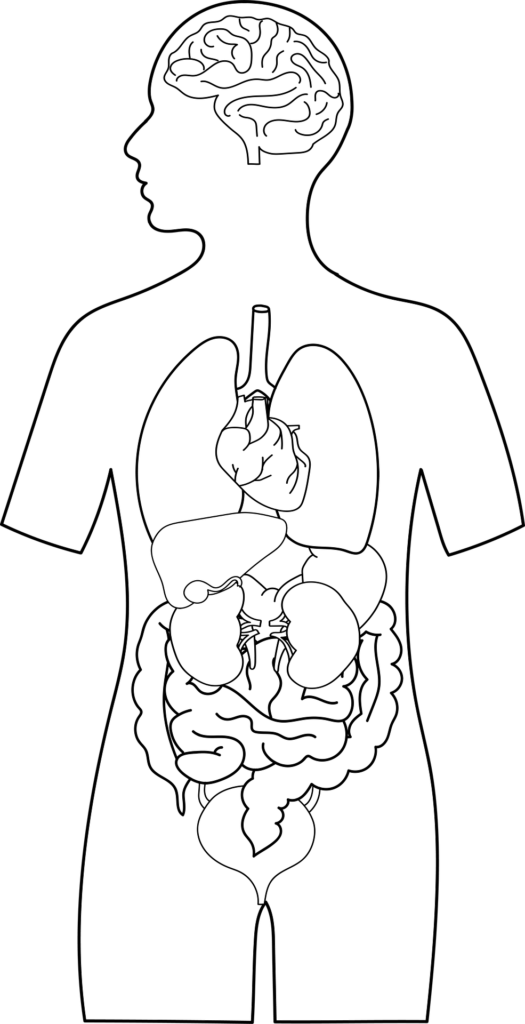Table of contents
- irritable colon symptoms and treatment: What is irritable colon?
- Irritable bowel symptoms
- Irritable colon causes
- How to know if you have an irritable colon
- Irritable colon treatment
- Irritable colon treatment: Life habits
- Irritable colon treatment: diet
- Irritable colon symptoms and treatment:Foods that irritate the colon
irritable colon symptoms and treatment. Irritable bowel syndrome (IBS) is suffered by at least 10% of the adult population. It is also twice as common in women as in men.
IBS can have substantial effects on the lives of people who suffer from it, especially in the area of socialization. Because of the consequences that this syndrome can cause in patients, in most cases they are limited in their freedom to carry out social activities.
With the purpose of knowing this ailment more in depth, in these lines we talk about the main aspects of it:
irritable colon symptoms and treatment: What is irritable colon?
Irritable bowel syndrome is a chronic functional disorder of the digestive tract that causes abdominal pain and changes in intestinal transit (constipation and/or diarrhea).
As you know, the colon is the last portion of the digestive system and the most important organ in it, since it is in charge of absorbing certain beneficial nutrients and eliminating useless substances.
Since it affects the colon and, therefore, the digestive system, irritable bowel syndrome is included in the group of pathologies of functional digestive disorders. Thus, it has been classified as a functional condition because it involves the alteration of the ordinary activities of the body, such as intestinal motility (the movement of the digestive tract to conduct the alimentary bolus from the mouth to the anus), the sensitivity of the intestinal nerves or the way in which the brain directs some of these functions.
It should be clear that although it does reduce, and not in a small way, the quality of life of people who suffer from it, the irritable bowel syndrome does not lead to a greater probability of suffering from cancer or shorten life expectancy.
Irritable bowel symptoms
The most common symptoms of irritable bowel syndrome are the following:
Abdominal pain or cramps, discomfort that is usually totally or partially relieved when evacuating the intestines. The type of pain that the patient feels is a sharp and oppressive pain that occurs in the lower abdomen. Most of the time, the patient relates the beginning of this symptom to the ingestion of some food.
Diarrhea or irregular constipation. Sometimes, the patient suffers predominantly from one of the two, and in other cases, alternately.
Abdominal swelling, as well as nausea or burning.
Early satiety when eating.
Loss of appetite.
Sensation of not having finished defecating, as well as incomplete evacuation.
Mucus in the feces, visualizing these with a whitish color.
Excessive gas.
Rectal pain.
As a result of the above symptoms, others may be triggered that are not directly related to the digestive system, but are caused by its malfunctioning: fatigue, anxiety, back pain, headache and difficulty in concentrating.
It is important to point out that these symptoms are not permanently present, but tend to occur intermittently. Likewise, their intensity and severity vary irregularly.
Irritable colon causes
Although it is known that IBS usually has hereditary causes, the rest of its specific causes are still unknown. That is, there is no known single reason that explains why patients with irritable bowel syndrome chronically suffer from the above-mentioned symptoms.
So far, the most accepted and proven statements are that there are alterations in the motility and/or digestive sensitivity, influenced by psychological factors. Thus, the experts consider that certain problems can be determining factors for the appearance of irritable bowel syndrome, such as the proliferation of bacteria or bacterial infections in the digestive tract, intolerance to certain foods and stressful situations in the past or certain emotional problems such as anxiety and depression.
Once again, we see how there is a close relationship between the emotional state and the health of the body, as is the case with most of the diseases our older adults suffer from.
Specifically in this specific illness, we must know that the brain and the intestine are very related, so the mood of our older adults directly influences their good intestinal functioning. When we suffer from anger, upset or any traumatic event, we secrete bile. And what is the function of this? To carry out the digestion of the fats in the intestine, being, at the same time, very laxative. Therefore, when a situation causes bile to be released in the intestine, it is very likely that diarrhea will occur.
How to know if you have an irritable colon
The diagnosis of irritable bowel syndrome is not simple. To diagnose it, the specialist doctor usually uses the so-called Rome criteria, which is based on the following pillars:
Presence of abdominal pain at least 3 days a month during the last 3 months, presenting, at the same time, two or more of the following signs:
Improvement of symptoms after evacuation.
Appearance of symptoms after a change in stool frequency.
Other symptoms associated with the shape (appearance) of the stool.
2. The discomfort must have started at least 6 months before the diagnosis.
Irritable colon treatment
At this time, there is no specific treatment for the cure of irritable bowel syndrome.
As indicated above, this condition emerges in the form of “outbreaks”. That is to say, periods in which the patient suffers the symptoms and others in which minor or null symptomatology is produced.
To approach the disease and to mitigate its symptoms, we can act from two fields: pharmacology and life habits.
Pharmacology
There are many medications that the doctor can prescribe to alleviate each of the symptoms of this ailment. Among the most common are the following:
Fiber. Except for abdominal pain, for which it does not have much effect. This component helps reduce the vast majority of symptoms related to the digestive tract.
Laxatives. Used in cases where constipation is predominant.
Antidiarrheals. Used in cases where diarrhea is prevalent.
Spasmolytics. Used to inhibit motility, so that they improve, in a notable percentage of patients, abdominal pain.
Antidepressants. Used with the ultimate goal of improving the intestinal tract by improving mood.
Probiotics. Although their effectiveness requires further research, everything seems to indicate that they improve abdominal distension.
Irritable colon treatment: Life habits
An adequate daily routine will improve the quality of life of patients suffering from this condition. The recommendations that this routine should contemplate are
Avoiding copious meals.
To make five meals per day and to take a sufficient time (at least, 20 minutes) to carry out them.
Also, take time to defecate.
Increase water intake until you are able to drink at least 2 liters of water daily (especially if constipation is predominant).
Take regular physical exercise. This acts on two main elements that we have discussed in these lines: digestion (promotes digestive motility) and emotional tension (helps eliminate stress and tension).
Avoid the consumption of tobacco and alcohol.
Try to change the way we face stressful situations so that they do not have as much effect on our health.
Irritable colon treatment: diet
The diet for the irritable colon does not have to be restrictive and highly limited. On the contrary, it should be varied. Of course, always bearing in mind which are the foods that, generally, gastroenterologists recommend not to consume if one suffers from this disease and which are those that, specifically, the own organism of our older relative does not tolerate adequately.
Foods that are good for the irritable colon
The most recommended foods in the diet of a patient with an irritable colon are mainly those listed below:
Corn.
Unprocessed meat.
Lactose-free dairy products and vegetable drinks (almond, oat or rice)
Vegetables such as chard, carrots, beans, tomatoes or peppers.
Fruits such as bananas, tangerines or blueberries
Irritable colon symptoms and treatment:Foods that irritate the colon
The foods that seem to aggravate the symptoms of irritable colon are wheat, lactose, some legumes such as beans or chickpeas, certain vegetables such as asparagus or broccoli, certain stone fruits such as apricots, chocolate, nuts, soft drinks, coffee and tea.
Also, all foods in general that contain a significant amount of carbohydrates. Well, bacteria in the intestine cause the fermentation of carbohydrates, which is the trigger for the appearance of gas, swelling and colic.
Having said this, it is important that the doctor be the one to guide a certain diet, since each food behaves differently in one organism than in another. Likewise, it will be fundamental that our older adults have someone to help them maintain both the diet and the life habits that the irritable bowel syndrome requires. We hope that this article on irritable colon symptoms and treatment has been useful.







